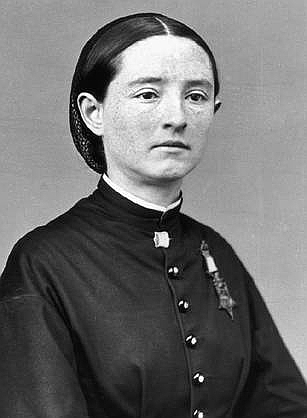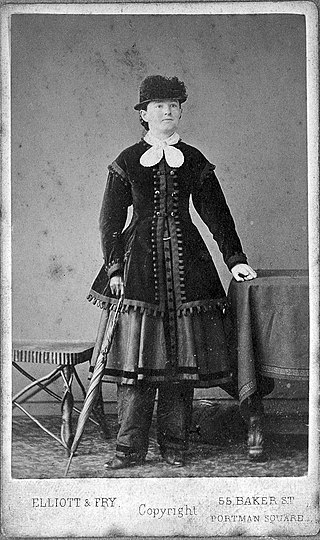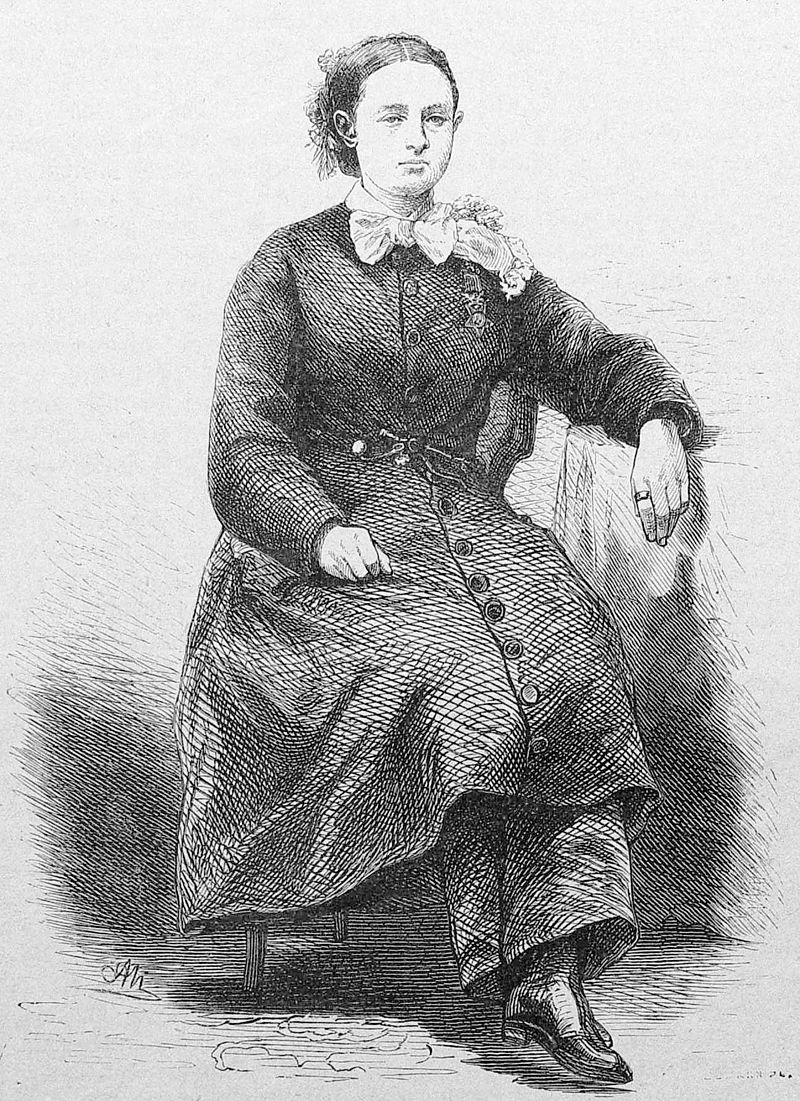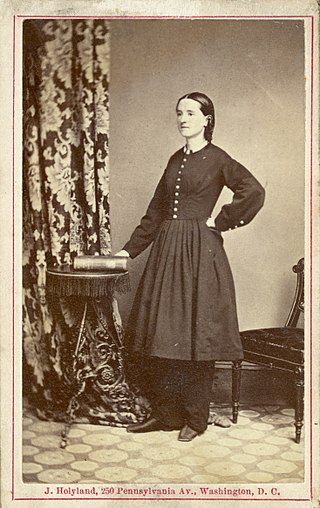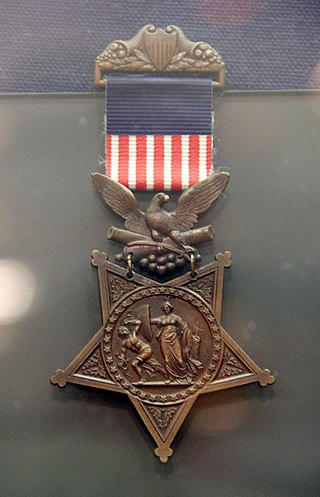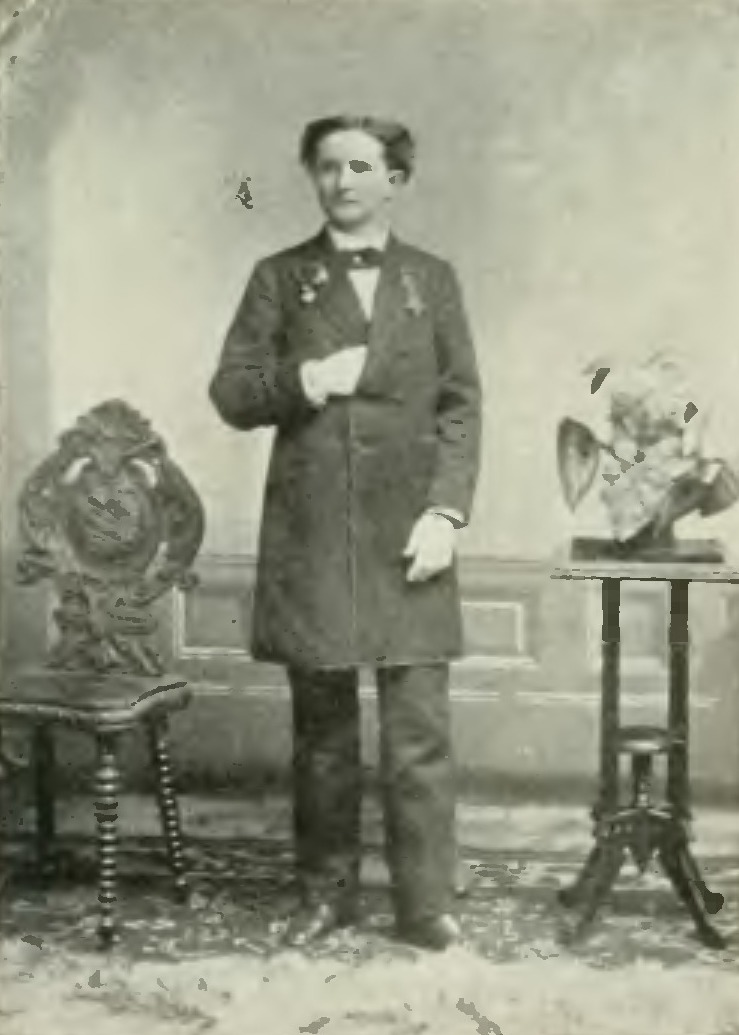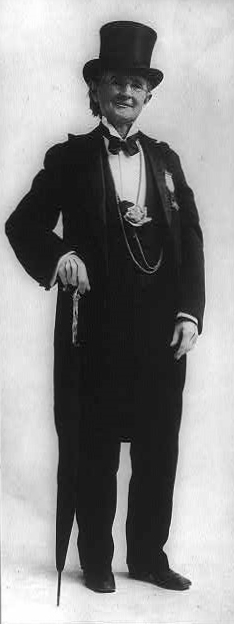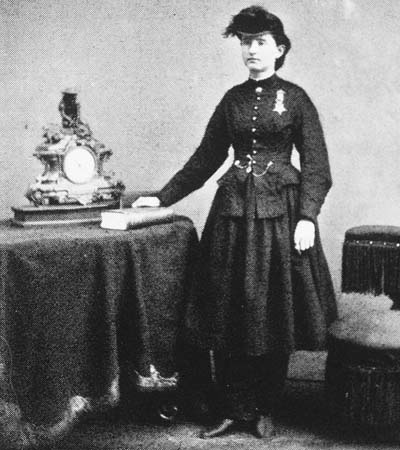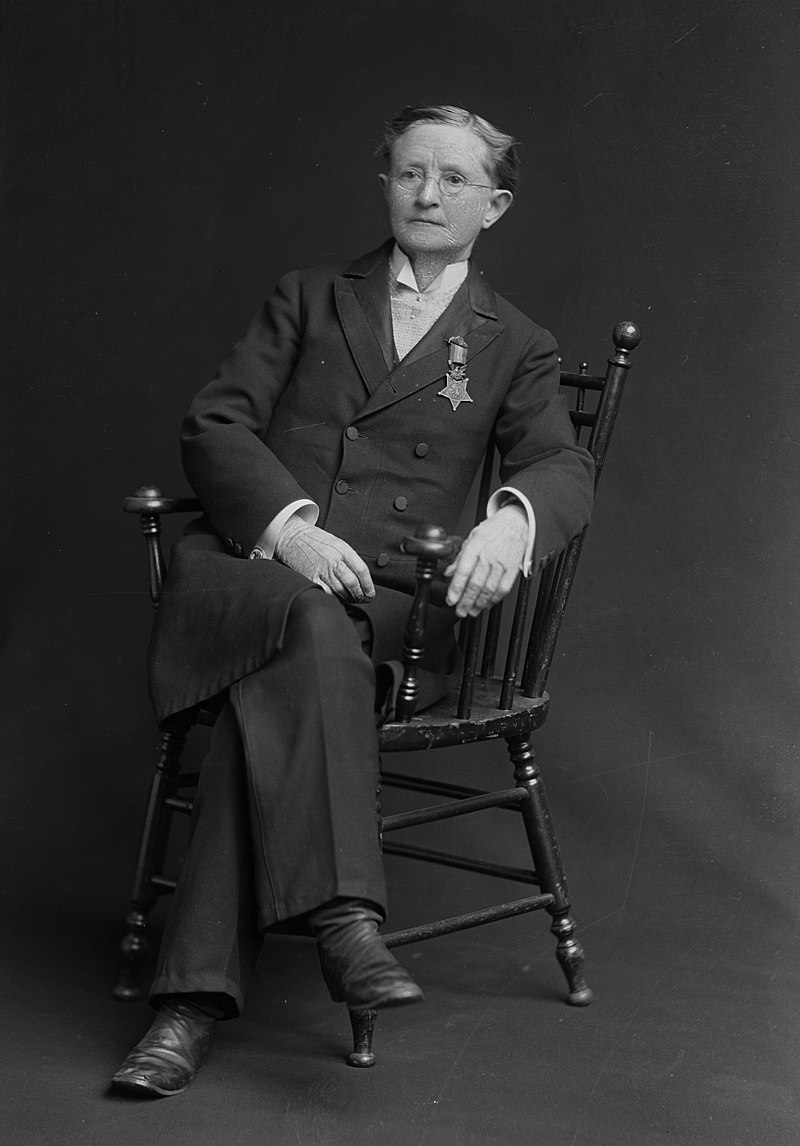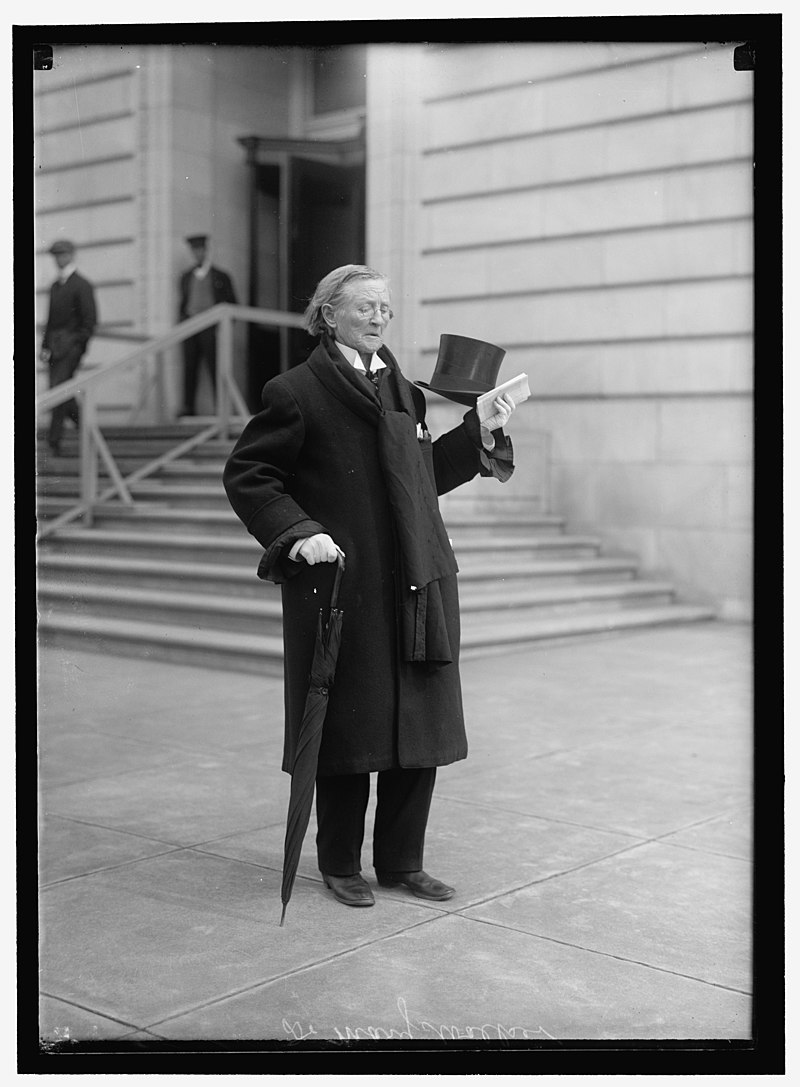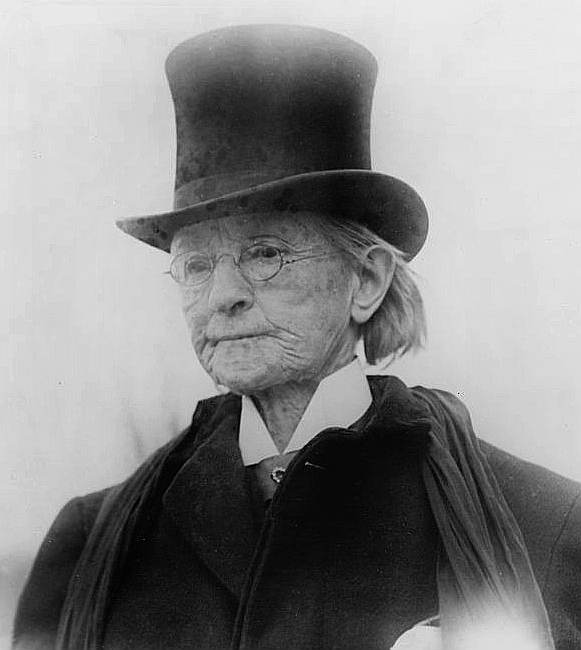Mary Edwards Walker, M.D. (November 26, 1832 – February 21, 1919), commonly referred to as Dr. Mary Walker, was an American abolitionist, prohibitionist, prisoner of war and surgeon. She is the only woman to ever receive the Medal of Honor.
In 1855, she earned her medical degree at Syracuse Medical College in New York, married and started a medical practice.
She volunteered with the Union Army at the outbreak of the American Civil War and served as a surgeon at a temporary hospital in Washington, D.C., even though at the time women and sectarian physicians were considered unfit for the Union Army Examining Board.
She was captured by Confederate forces after crossing enemy lines to treat wounded civilians and arrested as a spy. She was sent as a prisoner of war to Richmond, Virginia until released in a prisoner exchange.
After the war, she was approved for the Medal of Honor, for her efforts to treat the wounded during the Civil War. Notably, the award was not expressly given for gallantry in action at that time, and in fact was the only military decoration during the Civil War.
Inspired by her parents' novel standard of dressing for health purposes, Walker was infamous for contesting traditional female wardrobe.
In 1871, she wrote, "The greatest sorrows from which women suffer to-day are those physical, moral, and mental ones, that are caused by their unhygienic manner of dressing!"
She strongly opposed women's long skirts with numerous petticoats, not only for their discomfort and their inhibition to the wearer's mobility but for their collection and spread of dust and dirt.
As a young woman, she began experimenting with various skirt-lengths and layers, all with men's trousers underneath. Her typical ensemble included trousers with suspenders under a knee-length dress with a tight waist and full skirt.
Walker is the only woman to receive the medal and one of only eight civilians to receive it. Her name was deleted from the Army Medal of Honor Roll in 1917 (along with over 900 other, male MOH recipients); however, it was restored in 1977.

 Read on Twitter
Read on Twitter